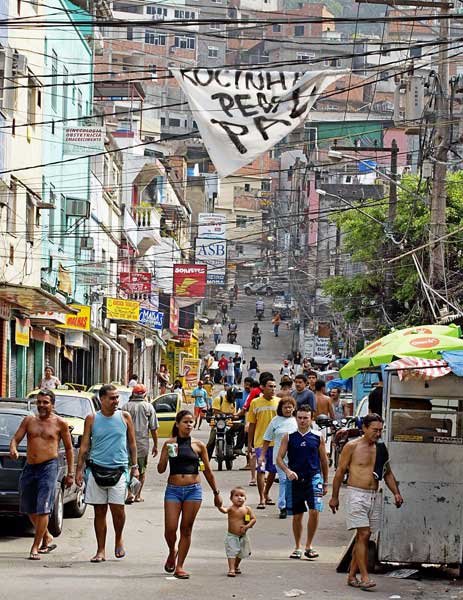Mission of the Month: Vigilance is vital for British tourists heading for Brazil
A series of despatches by diplomats from British Embassies and High Commissions around the world

Your support helps us to tell the story
From reproductive rights to climate change to Big Tech, The Independent is on the ground when the story is developing. Whether it's investigating the financials of Elon Musk's pro-Trump PAC or producing our latest documentary, 'The A Word', which shines a light on the American women fighting for reproductive rights, we know how important it is to parse out the facts from the messaging.
At such a critical moment in US history, we need reporters on the ground. Your donation allows us to keep sending journalists to speak to both sides of the story.
The Independent is trusted by Americans across the entire political spectrum. And unlike many other quality news outlets, we choose not to lock Americans out of our reporting and analysis with paywalls. We believe quality journalism should be available to everyone, paid for by those who can afford it.
Your support makes all the difference.About 180,000 British nationals visit Brazil each year, many of them taking the opportunity to pass through the Cidade Marvilhosa (the "marvellous city") of Rio de Janeiro. But 300 British visitors a year end up needing the assistance of my consular colleagues for one reason or another. It is not usually for the reasons you might think, such as falling victim to crime. Most of our time is spent assisting British citizens who have lost passports, or who have been arrested for drug trafficking.
Of course, we do help those who have fallen victim to crime, which is why we advise that some of the bigger cities in Brazil have a reputation for high levels of crime and violence and Britons should be vigilant. Last year, we helped a group of 10 backpackers who were held up at gunpoint in the middle of the night in their youth hostel. They were really grateful for the help of my consular colleagues and were able to continue with their onward travels.
Another important part of our consular work in Rio is training alongside our colleagues from Brazil and South America, so that we can help Britons in times of major crisis. Our last major crisis response was on the Air France Flight 447 that crashed off the north-east coast of Brazil on 1 June 2009. We helped the families of all the British casualties involved in the incident, working alongside our Foreign and Commonwealth Office staff in London and Paris, and the West Midlands Police, among others.
Responding quickly and effectively to these sorts of emergencies is a vital part of the consular work we do. Although we recognise that in times of crisis there is little we can do to put right what has happened to the those involved and their families, there is much we can do on the ground to mitigate against further things going wrong for them.
This is one of the reasons we try to encourage Britons travelling and living overseas to register their travel with us, so that we can try to contact them and their families quickly in an emergency. Visit fco.gov.uk to register with your nearest British Embassy.
Stuart Smith is the British consular manager based in the British Consulate General in Rio de Janeiro, Brazil. For travel advice on Brazil, and for travel everywhere else on the planet, see www.fco.gov.uk/travel
Join our commenting forum
Join thought-provoking conversations, follow other Independent readers and see their replies
Comments